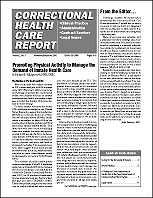Is COVID-19 Here To Stay? A Team of Biologists Explains What It Means For a Virus To Become Endemic
Author: Sara Sawyer.; Arturo Barbachano-Guerrero.; Cody Warren.
Source: Volume 23, Number 01, Winter 2022 , pp.9-10(2)

< previous article |next article > |return to table of contents
Abstract:
SARS-CoV, the coronavirus responsible for the first SARS pandemic in 2003, spread to 29 countries and regions, infecting more than 8,000 people from November 2002 to July 2003. But thanks to quick and effective public health interventions, SARS-CoV hasn’t been observed in humans in almost 20 years and is now considered extinct. On the other hand, pandemic viruses may also gradually settle into a relatively stable rate of occurrence, maintaining a constant pool of infected hosts capable of spreading the virus to others. These viruses are said to be “endemic.” Examples of endemic viruses in the United States include those that cause the common cold and the seasonal flu that appear year after year. This article explores the factors that will determine whether the virus that causes COVID-19 will or will not die out and, if it becomes endemic as most experts now expect it to, what that will mean for health care practice and public health policy going forward.Keywords: Endemic Viruses
Affiliations:
1: University of Colorado, Boulder; 2: University of Colorado; 3: University of Colorado.